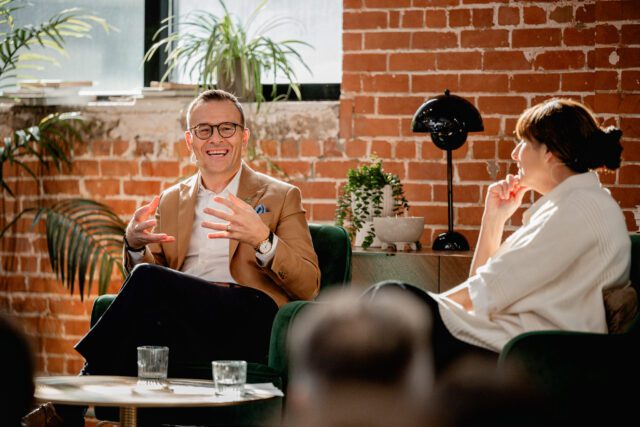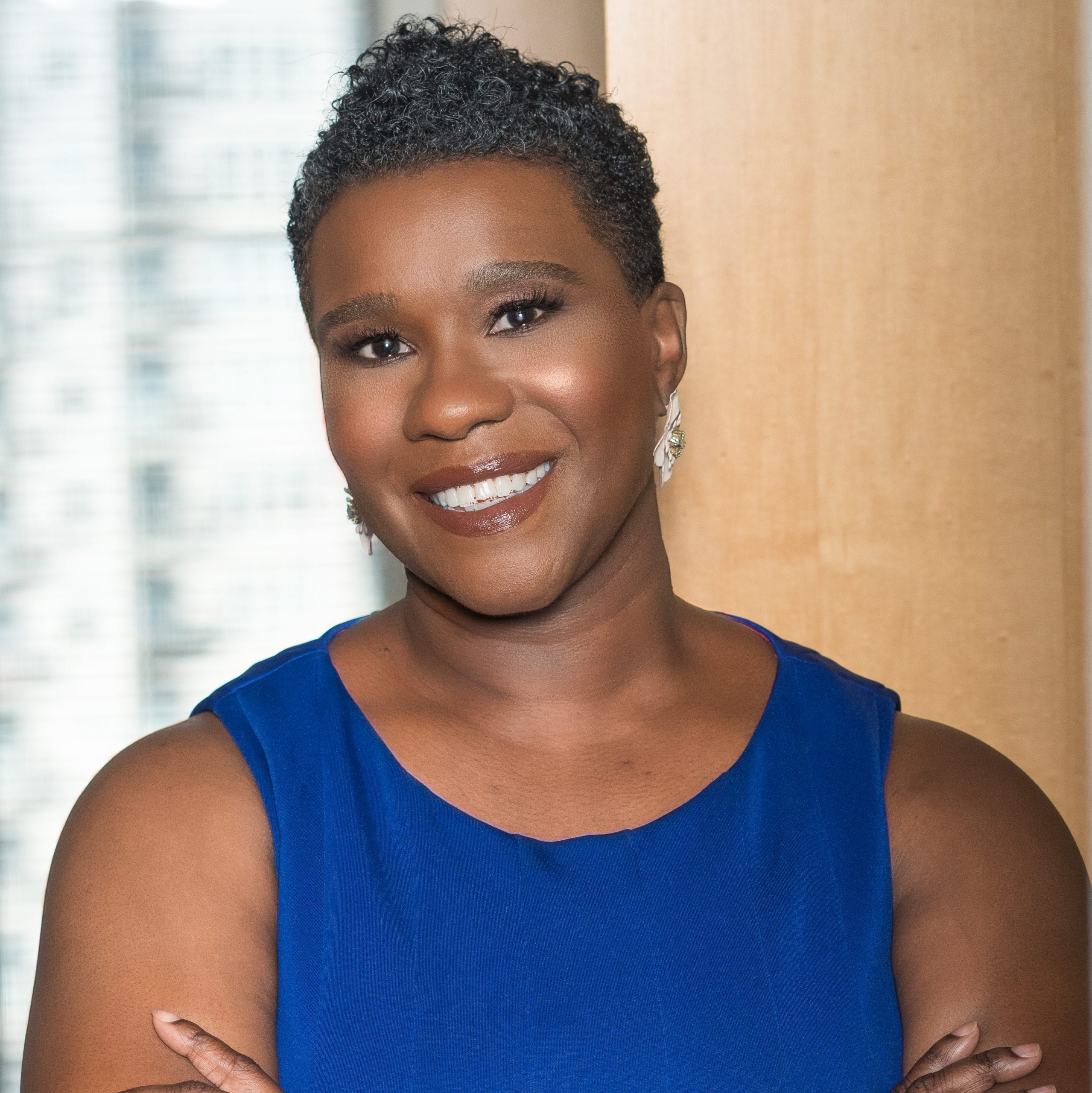Career: Is Your Inner Monologue Your Worst Enemy?

Women, ambitious? Absolutely. Yet within two years of entering the job market, their dreams of promotion and fulfilment are eroded to the extent that their confidence drops by 60%. But what are these obstacles that arise on the path of female ambition? Helen Antoniou, lawyer, author, leadership coach, and mother of three daughters, shares her thoughts on this subject that weighs on her mind.
The Ambitious Woman’s Path is Fraught with Pitfalls
According to a 2016 Léger poll on ambition done for The A Effect, professionally ambitious women give their ambition a score equivalent to that of men (7.9/10 and 7.7/10 respectively). There is well-placed pride, especially among the younger generation. So, let’s be honest: women’s ambition is not a factor in their difficulty realizing their aspirations.
Still, many obstacles deplete their strength. It has long been said that perception biases (or unconscious biases) are harmful to ambitious women from the moment they are hired. Because of these same biases, professional women with high aspirations are still viewed negatively; a competitive woman is labelled careerist or aggressive, while a man with similar behaviours will be positively considered a go-getter.
Another significant hindrance, according to Helen Antoniou, is the perfectionism that largely colours the way women approach their tasks: “When you think about it, you realize that [among other things] this is linked to the fear of delegating, because we worry the work won’t be done well. But the higher you rise in the organization, the more you must accept the idea that you can’t do everything yourself.”
What’s more, adds the leadership coach, women wear many hats, which jeopardizes their chances of developing their network. “There is certainly tangible progress in terms of the division of tasks, but it’s still very challenging for women to reconcile their various responsibilities in the multiple areas of their life. We know that informal conversations, in which women have a harder time participating, are often where decisions are made,” Helen Antoniou remarks insightfully. This is an issue that is unlikely to disappear with remote working. “In some ways, remote working is great, since it fosters work-life balance. However, the office is still the decision-making centre. And so many things are said before or after a team meeting, or in passing in the hallway! By only attending meetings virtually, we cut ourselves off from these chances to forge connections, have spontaneous discussions, and seize certain opportunities,” Helen Antoniou emphasizes, stressing the importance of realizing this and thinking it through.
The near-absence of inspiring female role models and the lack of opportunity and recognition are all issues that significantly impede women’s advancement. Yet beyond the systemic elements that Helen Antoniou sees on the ground – and which must be addressed –, she believes that one of the main pitfalls hindering ambition in women is embedded in the inner monologue.
The Inner Monologue: When “That Little Voice” Gets Involved
Helen Antoniou believes that ambition is first anchored in an unavoidable and essential period of reflection. Introspection lets us better understand ourselves and where we’re going, strengthen our confidence, and develop positive self-talk – that is, the little voice in our head that sometimes taunts us and holds us back from going after the full realization of our aspirations. Introspection is a demanding process that takes practice, she warns, but through which we succeed in defining and accepting our priorities at every stage in life. Indeed, each period of our lives forces us to revisit what we wish to prioritize: career, family, relationship, community, or any other personal goals. “Being fully aware of the options available to us [and of our own choices] prevents the discouragement and fatigue triggered by overload when doing everything at once.” It’s thanks to this self-awareness that we maintain control of our life and avoid descending into feelings of guilt.
Emphasizing the inner monologue as the foundation that lets us develop our own power, the coach adds that this fact also sheds new light on some of the obstacles mentioned above: perception biases are not only present outwardly. Sometimes, we have them against ourselves! “The human brain is more likely to retain things that seem negative and worrisome, a survival instinct that alerts us to potential dangers. Thus, when faced with a challenge that scares us, the first step is to observe ourselves and identify our perception of our skills and experience: we’re often our own worst enemy!” warns Helen Antoniou. “Introspection lets us bring our negative perceptions to the foreground using counter-examples,” she adds. This allows us to give positive reinforcement to our inner monologue and tame that little voice: “I’m not as strong in situation X, but I did successfully complete projects X, Y, and Z; with a good team, I could do it!”
Since we sometimes need to nurture our inner monologue with outside perspectives, being able to rely on our network is essential, as Helen Antoniou explains. “It’s important to choose people who can advise, encourage, and help us progress in our desired direction. This goes from friends to mentor to coach. And why limit yourself?” she asks, adding that we shouldn’t hesitate to knock on doors. “Be daring! There are people who have had prolific careers and who hope, as their professional journey nears its conclusion, to be able to give back, to share.
When the Inner Monologue Brings Out the Full Potential
We know very well that the inner monologue brings out the potential of people who have a strong sense of self paired with good self-confidence. It grounds them during the many inevitable upheavals scattered along every career path. To illustrate, Helen Antoniou enthusiastically brings up the finals of the US Open (tennis) in New York, this past September 11, where Leylah Annie Fernandez, the young player from Laval, Quebec, lost to Britain’s Emma Raducanu. “From the first serve, she could hardly muster a return. But she kept her mental toughness! She calmly stayed focussed on her goal of winning and made her opponent run, aiming to make her lose control.” Despite being defeated, the athlete asked to speak to the crowd to express her admiration for the resilience of New Yorkers marking the tragic 20th anniversary of September 11, 2001. “What mental clarity! Having just lost and ended up second despite her ambition of being a champion, she rose above her own goal and turned to others. Although she was disappointed in the outcome of the match, her sense of self wasn’t shaken.” This is the power of the inner monologue and the courage to be ambitious. It’s the best foundation for achieving your greatest aspirations… and overcoming many obstacles!







